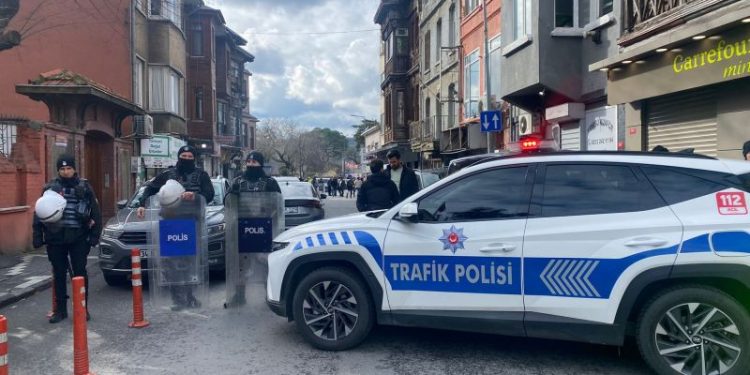Body:
The peaceful atmosphere of a Sunday morning in Istanbul was shattered when gunmen stormed into a church, opening fire on the congregation and killing one person. The tragic incident took place during the Sunday service at a church located in the heart of the city. This shocking act of violence serves as a grim reminder that places of worship, once thought to be sanctuaries, are not immune to the senseless acts of extremism that plague our world today.
Eyewitnesses described a scene of terror and chaos as the gunmen entered the church and began indiscriminately firing upon the unarmed worshippers. Panic ensued as people dived for cover, seeking refuge wherever they could find it. The sound of gunfire reverberated through the halls, shattering the tranquility that typically accompanies a place of worship.
Authorities were quick to respond, with law enforcement officers and emergency services rushing to the scene. In the aftermath of the attack, the injured were swiftly taken to hospitals for treatment, while the deceased person’s family was left to grapple with the unimaginable loss. The violence had not only claimed a life but had also inflicted emotional and psychological wounds upon the survivors, leaving an indelible mark on the entire community.
As news of the attack spread, shock and sadness rippled across Istanbul and around the world. This act of violence was a stark reminder that no country, city, or community is immune to the threats posed by extremism. It underscores the need for ongoing efforts to promote peace, tolerance, and dialogue among individuals of different faiths and backgrounds.
The attack on a place of worship strikes at the very heart of religious freedom and the fundamental right to practice one’s beliefs without fear. It also highlights the importance of security measures to protect places of worship and ensure the safety of congregants. Governments and religious leaders must work collaboratively to develop and implement effective strategies to prevent similar acts of violence in the future.
Moreover, addressing the root causes of extremism is crucial in preventing such tragic incidents. It requires an examination of the social, economic, and political factors that contribute to radicalization, and the implementation of comprehensive initiatives that promote inclusion, equality, and respect for all individuals.
In the face of this tragedy, communities must come together in solidarity, supporting and comforting one another. It is vital to demonstrate that love and compassion will prevail over hate and violence. Faith leaders play a pivotal role in guiding their congregations during these times of despair, reinforcing messages of peace, unity, and resilience.
As investigations into this attack unfold, it is imperative that authorities bring those responsible to justice swiftly and effectively. They must reinforce the message that acts of terror will not go unpunished, sending a clear signal that violence and intolerance have no place in a civilized society.
In conclusion, the attack on the Istanbul church during Sunday service is a tragedy that has deeply impacted the local community and reverberated around the world. It is a stark reminder of the urgent need to address the growing threat of extremism and to prioritize the safety of places of worship. By fostering unity, promoting dialogue, and coming together in the face of adversity, communities can assert their resilience and determination to combat hatred and violence. Only through collective action can we hope to build a future free from such senseless acts of terror.

















